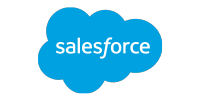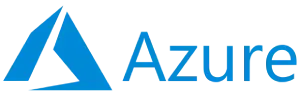- Home
- What we do
- Market
- MedTech
- EHRs and Clinical Decision Support Systems
EHRs AND CLINICAL DECISION SUPPORT SYSTEM
Advancing clinical outcomes and care coordination with innovative EHR solutions
Unlock the full potential of your EHR system with digital engineering, data analytics, AI, interoperability, and user-centric design

BLOG
Unlocking EHR Data to Accelerate Clinical Quality Reporting & Enhance Renal Care Management
EHRS & CLINICAL DECISION SUPPORT SYSTEMS
Enhance compliance, care delivery, and decision-making with future-ready EHR and CDS solutions
We understand that ISVs are on the threshold of new times of Digital Transformation. There is a need to re-invent the digital health technologies, including EHRs, to make them more intuitive and efficient. Our key differentiators lie in our deep domain expertise, proven experience across various specialty and generic EHRs delivering successful greenfield and brownfield projects. We are accelerating the transformation journey for our clients via our cloud adoption strategies, human centric design approach, compliance with meaningful use, HIPAA and seamless interoperability with Health Information Exchanges (HIEs). We excel in helping our customers build next-gen EHR systems with a comprehensive library of care plans, personalized algorithms, and care team support. Our expertise includes interoperability, decision support, AI/ML, GenAI, and analytics. We actively support the transition to value-based care focused on patient engagement & delight.
Consulting Expertise
350+ SMEs with deep experience in EHR modules, regulatory actions and specialized workflows
EHR Engagements
Over a decade of partnerships with top EHR ISVs. Collaborating with 5 of the top 10 EHR vendors in the US.
Engineering Excellence
Proven track record in developing robust EHR systems and bespoke solutions.
Interoperability Pedigree
One of the highest numbers of certified HL7/FHIR professionals
Strong Partnerships
Strategic partnerships with AWS, Azure, Google Cloud Platform, Salesforce, Snowflake, Databricks, and more.
CONNECT WITH US
Expanding health IT capabilities to match evolving clinical and regulatory requirements

FEATURES
Drive Transformation with Cutting-Edge EHR and Clinical Decision Support Solutions
Domain & User Experience Consulting
Customize workflows for all specialties i.e. Nephrology, Dermatology, Neurology, Orthopedics, Urology, ED and regulatory guidance around complexities of MACRA, MIPS, and ONC Health IT Certification – HTI-1, 2015 Cures etc. improving adoption rates and reducing cognitive load.
Custom EHR development and workflow optimization
Tailored EHR development on-premises and cloud, modular development using state-of-the-art microservices and API architectures, and optimization of clinical workflows for ePrescribing (eRx), Clinical Documentation Improvement (CDI), Value-based care, precision medicine, Telehealth, Remote patient monitoring (RPM) and specialty workflows.
AI, GenAI & Clinical Decision Support Systems (CDSS)
Advanced CDSS leveraging AI/ML, Gen AI technologies to provide real-time, evidence-based recommendations, utilizing NLP and big data analytics to enhance clinical decision-making and improve patient outcomes.
Interoperability and Data Exchange Solutions
Expertise in integrating EHR systems with healthcare systems like Public Registries, HIE, Devices, IoT, LIS/RIS/HIS, PACS, using standards like HL7 v2/v3, FHIR, and DICOM, ensuring seamless data exchange and translation (ICD, SNOMED, LOINC etc.), enhanced interoperability, and compliance with the 21st Century Cures Act including USCDI and FHIR APIs.
Digital health, Telehealth and Remote Patient Monitoring (RPM) Solutions
Development of mobile and web apps for medication adherence, education and care coordination. Integration of telehealth solutions and Remote Patient Monitoring (RPM) capabilities into EHR systems, enabling virtual care, real-time patient monitoring, and enhanced patient engagement through secure, interoperable platforms.
Regulatory Compliance, Security, and Privacy
Dedicated practice focused on achieving and maintaining compliance with healthcare regulations such as HIPAA, MACRA, MIPS, and HITECH, including data security assessments, end-to-end encryption, advanced authentication protocols, and implementations aligned with the NIST Cybersecurity Framework.
Hyper-automation, Implementations and Support
Infusing automation across backend workflows like RCM, ePA, eBV etc. with RPA and GenAI. Implementation, configuration, data migrations for EHRs across hospitals and clinics. 24x7 L1-L4 support for EHR, ancillary components, legacy codebase, feature upgrades.
SUCCESS STORIES
Solving some of the greatest challenges in Healthcare

Case Study
CitiusTech's Operationalizing Al-Driven Clinical Decision Support System for Early Diagnosis Healthcare Breakthrough
Citius Tech helped the client handle the complexities of operationalizing the algorithm on a cloud-based platform that integrates seamlessly with the hospital's electronic health records (EHRs).

Case Study
End to end development, implementations, and support partnership with a leading cloud EHR
CitiusTech’s development center manages EHR implementations across US facilities, integrating clients’ EHR, PMS, and RCM solutions into hospital workflows. Successfully integrated 15+ EHR systems, collaborated with 350+ vendors, managed 3500+ interfaces, and resolved 2400+ defect backlogs for a healthcare giant.

Case Study
SERVICES
Shaping Healthcare Possibilities with intelligent technology solutions
%20(3).webp)




Digital Engineering
Reshaping Healthcare with cutting-edge technology solutions for better patient care

Data Engineering & Data on Cloud
Making Healthcare data the backbone of your organization's strategy












.png?width=1920&height=1080&name=Consulting2_Menu_1%20(1).png)


















